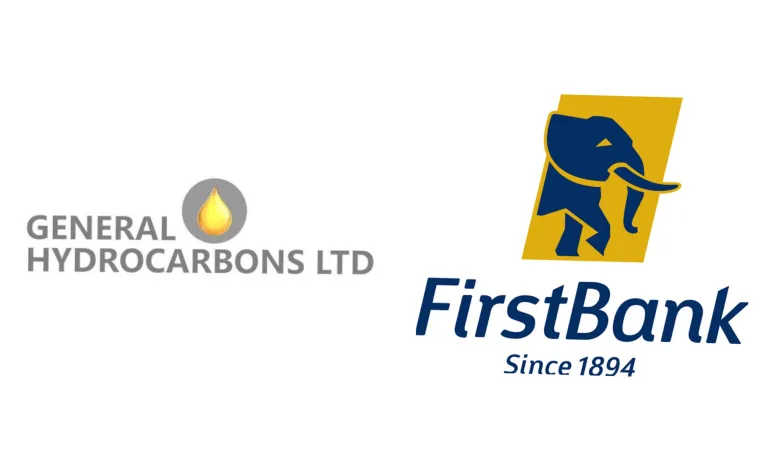General Hydrocarbons Limited (GHL) has issued a strong rebuttal to recent media reports alleging that the company’s accounts have been frozen by a Federal High Court in Lagos over an alleged $225.8 million debt to First Bank of Nigeria (FBN).
GHL, in a detailed statement signed by Director of Strategy & Operations, Abdelmuizz Bello, described the claims as “misleading and malicious,” urging the public to disregard the false narrative being circulated.
The disputed media reports, published on January 10 and 11 2025, alleged that GHL, owned by Mr Nduka Obaigbena, Chairman of THISDAY/ARISE Media Group, was restrained from accessing its accounts due to outstanding debts. However, GHL clarified the situation, providing detailed context and evidence to debunk the allegations.
Background of the Dispute
According to GHL, the company entered a Subrogation Agreement with FBN on May 29, 2021, where FBN agreed to fund the exploration and development of OML 120, an oil mining lease, in exchange for a 50:50 profit-sharing arrangement from oil production proceeds after statutory deductions. This agreement was designed to enable FBN to address its non-performing loans, which were discounted to $600 million.
The company highlighted that the non-performing loan arose from FBN’s “unsecured and reckless lending to Atlantic Energy,” lending to Atlantic Energy, was unrelated to GHL’s operations. Nevertheless, GHL’s agreement played a crucial role in stabilising FBN’s finances, allowing the bank to declare significant profits instead of losses in its 2021 financial statement.
“Instead of declaring a loan loss of N302Bn at the then exchange rate, the signing of the Tripartite agreement with GHL enabled FBN to declare a profit of N151Bn ($377.5million) for the year ending December 31, 2021.
“GHL signed the agreement trusting and believing that the FBN which it thought was a bank with integrity, would comply and continue to comply with its obligation to fund OML 120; FBN’s failure and refusal to do so has opened a challenge to its audited financial statement,” GHL explained.

FBN’s Alleged Non-Compliance
GHL accused FBN of failing to meet its obligations under the agreement. Despite disbursing $185 million, FBN reportedly delayed payments, often taking up to 70 days instead of the agreed five days, which caused operational inefficiencies and losses exceeding $147 million.
“Although FBN had disbursed $185million, the way and manner of the disbursement which was agreed to be 5 days after funding request, sometimes lasted up to 70 days after funding request; service providers led by Schlumberger, Baker Hughes and Century that were supposed to be paid at the same time for various interventions were paid sporadically at different times, resulting in massive losses in day rates and downtimes, leading to inefficiencies and losses of over $147 million, including an arbitration award to one of the service providers,” GHL explained.
The company also highlighted that all disbursements were vetted and approved by FBN’s credit and risk teams, with payments made directly to contractors. Allegations of fund diversion, therefore, lack merit.
Court Proceedings
GHL disclosed that it obtained court orders on December 12, 2024, restraining FBN from obstructing its ability to secure alternative funding or interfering with its operations on OML 120. However, FBN allegedly sought a separate court order during recess, without disclosing the earlier judgement, to freeze GHL’s accounts. GHL described this move as a gross abuse of judicial process and an attempt to mislead the public.
“Despite the existence of a subsisting court order, FBN, using the same lawyers who lost at the Federal High Court presided by Justice Allagoa, went to another judge of coordinate status , during recess without disclosing the earlier judgement, to obtain an interim Mareva injunction restraining GHL and its shareholders from operating their accounts over a purported and unfounded debt of $225.8million.
“The FBN had since weaponised the Mareva injunction which it procured on December 30, 2024, to confuse the public and befuddle the issues. A clear abuse of the Court Process.
“This impunity is now back before the Federal High Court, Lagos.
“We believe that sooner or later Justice will be served,” the statement reads.
Loan Moratorium Still in Place
The company emphasised that the $185 million disbursed by FBN is not yet due for repayment, as the agreement stipulates that repayment would only commence after profits are realised from commercial oil production.
“It is important to note that the disbursed loan of $185million is not due for repayment. The loan is still within the moratorium period as per the Facility and Tripartite Agreements. The loan is only due when there are profits to be shared 50:50 from commercial oil production.
“Clearly, there is need for much more money which FBN has refused to provide. Instead of performing its role as a lender who was saved from the abyss, FBN is trying to bully and force GHL out of the transaction and take over the oil bloc, using its directors and other proxies with this clearly induced crisis,” the statement disclosed.
GHL also noted that FBN’s non-performance under the agreement has left the company no choice but to explore alternative financing options to save the OML 120 project.
GHL reaffirmed its commitment to fulfilling its obligations and ensuring the success of OML 120, which is vital to the Nigerian economy. The company expressed confidence in the judicial process, emphasising its readiness to resolve the matter through arbitration and clear its name from misleading allegations.


